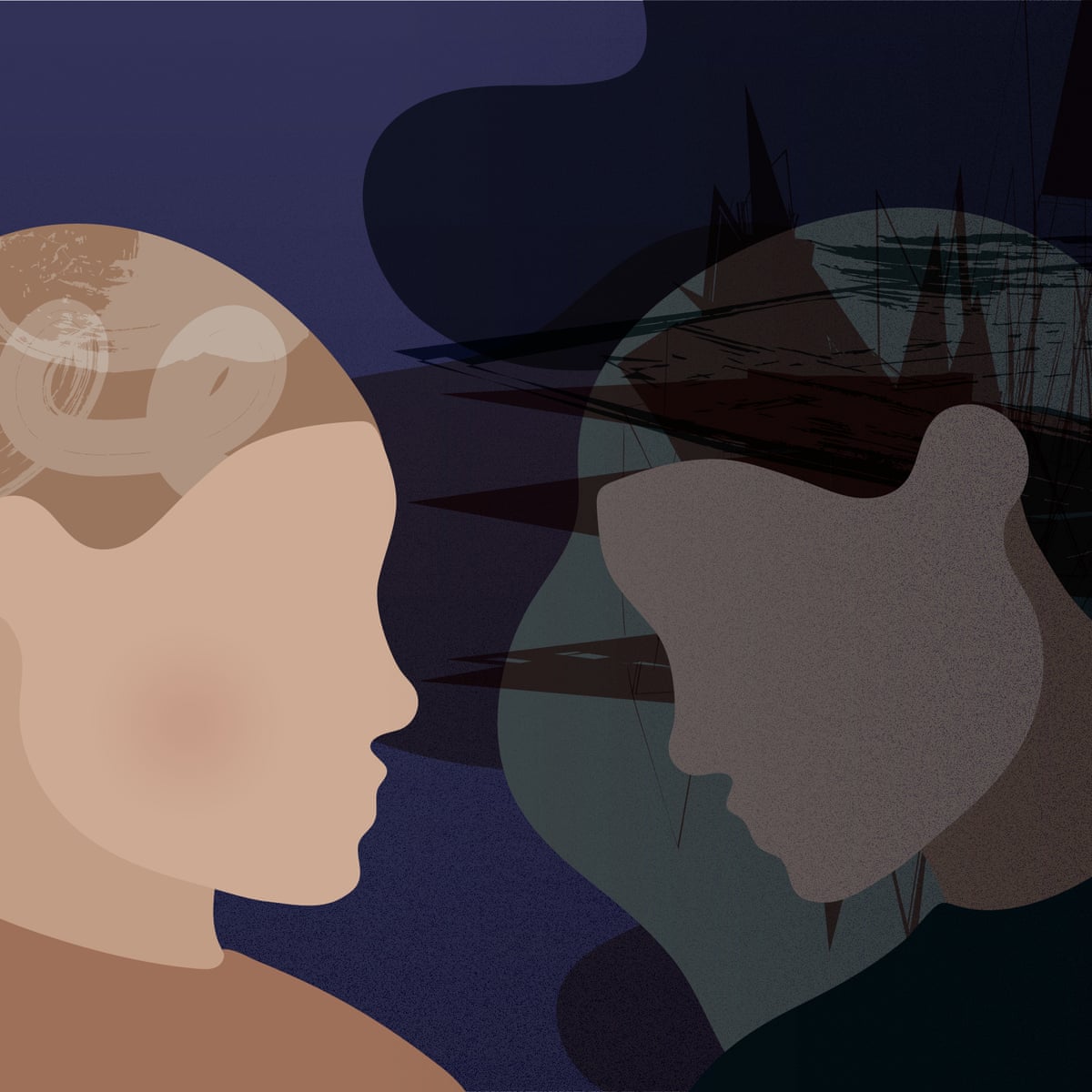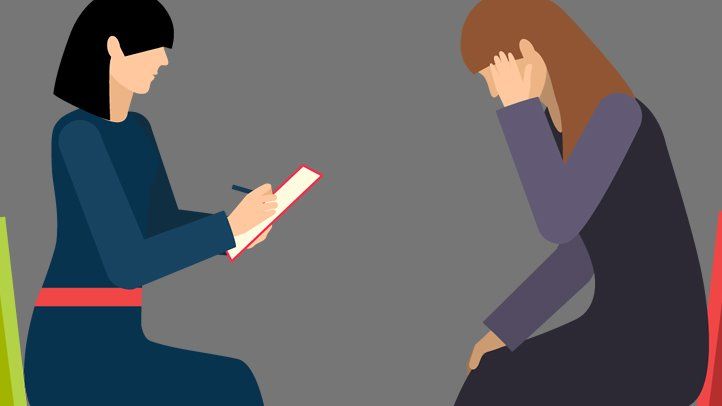Borderline schizophrenia is a mental illness that affects how a person thinks, feels, and behaves. It can be very difficult to diagnose because the symptoms are often similar to those of other mental illnesses. In this blog post, we will discuss borderline schizophrenia in detail. We will explore the signs and symptoms of the illness, as well as the treatment options available. If you think that you or someone you know may be suffering from borderline schizophrenia, please seek professional help immediately.
Contents
- 1 What Is Borderline Schizophrenia?
- 2 Signs of Borderline Schizophrenia
- 3 Causes of Borderline Schizophrenia
- 4 Negative Impacts of Borderline Schizophrenia
- 5 Diagnosis of Borderline Schizophrenia
- 6 Treatment of Borderline Schizophrenia
- 7 Managing Borderline Schizophrenia
- 8 Helping Someone With Borderline Schizophrenia
- 9 Conclusion
- 10 A Word From Therapy Mantra
What Is Borderline Schizophrenia?
 Borderline schizophrenia is a serious mental illness that can significantly disrupt daily life. It is characterized by unstable moods, distorted thoughts and perceptions, and impulsive behavior. People with borderline schizophrenia often experience intense episodes of anger, anxiety, or depression that can last for hours or days.
Borderline schizophrenia is a serious mental illness that can significantly disrupt daily life. It is characterized by unstable moods, distorted thoughts and perceptions, and impulsive behavior. People with borderline schizophrenia often experience intense episodes of anger, anxiety, or depression that can last for hours or days.
This disorder sometimes occurs in young adults who have a history of borderline personality disorder or other mental health problems. It is also more common in people who have a family member with schizophrenia.
Borderline schizophrenia can be difficult to treat because it often co-occurs with other disorders, such as substance abuse or depression. Treatment typically involves medication and psychotherapy. In some cases, hospitalization may be necessary to protect the person from harm or themselves.
Signs of Borderline Schizophrenia

There are many signs of borderline schizophrenia. Some of these symptoms are:
Extreme Mood Swings
Mood swings are something that is common with people who have borderline schizophrenia. These mood swings can go from being really happy to really sad in a short period of time. Sometimes there are even manic episodes where the person is extremely happy and then they will crash and become really depressed.
Paranoia
People with borderline schizophrenia often have paranoia. They may think that people are out to get them or that they are being followed. They may also have delusions where they believe things that are not true. It might also give a negative view of themselves and the world around them.
Hallucinations
People with borderline schizophrenia may also have hallucinations. This means that they see or hear things that are not really there. For example, they might hear voices that are telling them to do things or they might see people who are not really there. These hallucinations can be very frightening for the person who is experiencing them.
Disorganized Speech and Behavior
Another symptom of borderline schizophrenia is disorganized speech and behavior. This means that the person may have trouble speaking in a clear way and their behavior may be all over the place. They might act out in public or say things that don’t make sense. This can be very hard for other people to with because it can be hard to understand what the person is trying to say.
Inability to Function
People with borderline schizophrenia may also have an inability to function. This means that they may not be able to go to work or school or take care of themselves. They may need help from others in order to do things that most people can do on their own. Sometimes there are many hospitalizations because the person is not able to take care of themselves.
Feelings of Emptiness
Sometimes a person may feel an emptiness inside. This can be a really hard feeling to deal with and it can make the person feel like they are not good enough or that they don’t matter. There can be a lot of feelings of loneliness and hopelessness with this symptom. It may be hard for people to understand why the person is feeling this way.
Loss of Contact
Contacts are very important to people with borderline schizophrenia. They may have a hard time keeping in touch with reality and this can make it hard for them to function in everyday life. Sometimes the person may even lose touch with their family and friends. This can be a very isolating experience for the person.
Shame
Shame is something that people with borderline schizophrenia may feel a lot of. They may feel like they are not good enough or that they are to blame for their illness. This can make it hard for them to get help because they may not want to tell anyone about their symptoms. It can also give an overall feeling of being a bad person.
Causes of Borderline Schizophrenia

There are many causes of borderline schizophrenia, but the exact cause is unknown. However, there are several risk factors that may contribute to the development of this condition. These include:
Genes
Genes are something that you inherit from your parents. Some research suggests that there may be a genetic link to borderline schizophrenia. This means that if someone in your family has this condition, you may be more likely to develop it yourself. There can be many different genes that contribute to the development of this condition, so it is difficult to identify any specific ones.
Brain Structure and Functioning
There is some evidence that suggests that problems with the way your brain functions or its structure may play a role in borderline schizophrenia. For example, people with this condition often have abnormalities in certain areas of their brains. Additionally, research has shown that different chemicals in the brain called neurotransmitters may be involved in causing this disorder. It can be difficult to determine whether or not these factors are actually responsible for causing borderline schizophrenia, however.
Environmental Factors
There is also some evidence that suggests that environmental factors may contribute to the development of this condition. This includes things like stress, traumatic life events, and exposure to certain toxins. It is still unclear how exactly these factors contribute to the development of borderline schizophrenia, but they may increase your risk of developing it. Sometimes, it can be hard to determine whether or not these factors are actually responsible for causing the disorder.
Neglect
Neglect is some evidence that suggests that may play a role in the development of borderline schizophrenia. This is because people who have this condition often have a history of being neglected or abused. This can include physical, emotional, or sexual abuse. Additionally, neglect can also refer to a lack of proper care or attention. For example, if you did not receive enough affection as a child, you may be more likely to develop borderline schizophrenia.
Abuse
Abuse is something that can increase your risk of developing borderline schizophrenia. This is because people who have this condition often have a history of being neglected or abused. This can include physical, emotional, or sexual abuse. Additionally, neglect can also refer to a lack of proper care or attention. For example, if you did not receive enough affection as a child, you may be more likely to develop borderline schizophrenia.
Conflicted Relationships
When the relationships are full of conflict, it can lead to an increased risk of developing borderline schizophrenia. This is because people who have this condition often have difficulty in their relationships. They may have a hard time trusting other people or they may constantly argue with others. If you have a lot of conflict in your relationships, it may be more difficult for you to cope with and manage your symptoms.
Injury
Sometimes when there is an injury there is an increased risk of developing borderline schizophrenia. This is because when there is a physical injury, it can cause emotional trauma. This emotional trauma may then lead to the development of this condition. Additionally, if you have experienced a lot of traumatic events in your life, you may be more likely to develop borderline schizophrenia. It is still unclear how exactly these factors contribute to the development of this condition, but they may play a role.
Signs of Suicide
Sometimes there are warning signs that a person is considering suicide. If you are concerned that someone you know may be suicidal, it is important to look out for these warning signs. Some of the most common ones include talking about wanting to die or hurt oneself, expressing feelings of hopelessness or worthlessness, withdrawing from friends and activities, increasing alcohol or drug use, abnormal mood swings, and giving away prized possessions. If you notice any of these warning signs in someone you know, it is important to reach out to them and get help.
Negative Impacts of Borderline Schizophrenia

There are many impacts of borderline schizophrenia, both negative and positive. Some of these are:
Trouble Concentrating
Sometimes there are problems with concentration and focus. This can make it difficult to complete tasks or stay on track. It may also give rise to poor school or work performance. There can be problems with memory too.
Visual and Auditory Hallucinations
These are usually visual, but can also be auditory. Most often, they are brief and not overly detailed. However, they can be disturbing and cause anxiety or fear. It can also give an individual a false sense of reality. Even if the person is aware that the hallucinations are not real, they can still be very frightening.
Anxiety And Depression
Anxiety and depression are something that many people with borderline schizophrenia struggle with. This is partly due to the fact that they often have difficulty coping with their symptoms. Additionally, the social isolation and stigma associated with the disorder can also contribute to feelings of anxiety and depression.
Self-Harm
There is a high incidence of self-harm in individuals with borderline schizophrenia. This can include cutting, burning, or hitting oneself. It is usually a way of trying to cope with intense emotions or overwhelming thoughts. Self-harm can be very dangerous and lead to further problems down the line.
Suicidal Thoughts And Behaviors
Sadly, suicidal thoughts and behaviors are quite common amongst those who suffer from borderline schizophrenia. This is often because they feel like there is no hope for them and that their life is unbearable. It is important to get help if you are experiencing these thoughts, as they can be deadly. These are just a few of the negative impacts of borderline schizophrenia. There are many more, which is why it is so important to seek help if you or someone you know is affected by this disorder.
Diagnosis of Borderline Schizophrenia
 There are a number of different ways that a person can be diagnosed with borderline schizophrenia. The most common method is through a clinical interview, which is conducted by a mental health professional. This type of interview will usually involve questions about symptoms and family history.
There are a number of different ways that a person can be diagnosed with borderline schizophrenia. The most common method is through a clinical interview, which is conducted by a mental health professional. This type of interview will usually involve questions about symptoms and family history.
Another way that someone can be diagnosed with this disorder is through the use of psychological tests. These tests can help to assess thoughts, feelings, and behavior. They can also be used to rule out other potential causes of symptoms.
It’s important to note that there is no one test that can definitively diagnose someone with borderline schizophrenia. Instead, diagnosis is typically based on a combination of factors. These may include:
- A detailed evaluation of symptoms
- A review of family history
- The results of psychological testing
- Input from other mental health professionals
Treatment of Borderline Schizophrenia

The treatment of borderline schizophrenia is similar to the treatment of other types of schizophrenia.
Medications
The first line of treatment for borderline schizophrenia is usually medications. Antipsychotic medications are used to treat the symptoms of schizophrenia. These medications help to control hallucinations, delusions, and thinking problems. These medications are usually taken for a long period of time. Some of these medications are:
- haloperidol (Haldol)
- risperidone (Risperdal)
- ziprasidone (Geodon)
- quetiapine (Seroquel)
- aripiprazole (Abilify)
- clozapine (Clozaril, FazaClo ODT)
Psychotherapy
Psychoeducation, cognitive-behavioral therapy, and family therapy are also used to treat borderline schizophrenia. Psychoeducation is a type of therapy that helps people with mental illness understand their condition. It can help people with borderline schizophrenia learn about the symptoms and treatments of the disorder.
Therapy
Therapy is something that is often recommended for people with borderline schizophrenia. Cognitive-behavioral therapy helps people to change the way they think about and react to their environment. This type of therapy can help people with borderline schizophrenia learn how to manage their symptoms. Family therapy can help families understand and cope with a loved one’s mental illness. Therapies are often combined to get the best results.
Self-care
People with borderline schizophrenia also need to practice self-care. This includes things like getting enough sleep, eating healthy foods, and exercising. These things can help people with borderline schizophrenia feel better and manage their symptoms. There can be a lot of stress associated with having a mental illness. Taking care of oneself can help reduce this stress. These also things can help people with borderline schizophrenia stay healthy and feel better.
Managing Borderline Schizophrenia

There are many different ways to manage borderline schizophrenia. Some of these are:
Build Support System
Building support is one of the most important things you can do to manage your borderline schizophrenia. Having people who support you and understand what you’re going through can make a big difference in your day-to-day life. It can also help you stay on track with your treatment.
Find Therapist
If you’re not already seeing a therapist, finding one can be a helpful step in managing your borderline schizophrenia. A therapist can provide support and guidance as you work to manage your symptoms. They can also help you understand more about your condition and how to cope with it.
Educate Yourself
Educating yourself about borderline schizophrenia can be a helpful way to manage your symptoms. Learning about the condition can help you understand it better and make it easier to cope with. There are many resources available online and at your local library. There are also support groups you can join.
Helping Someone With Borderline Schizophrenia

Helping someone with borderline schizophrenia can be difficult. They may not always be able to tell you what they need, and their behavior may be unpredictable. Here are some things you can do to help:
Educate Them
Educating someone with borderline schizophrenia about their condition can help them feel more in control. It can also help you understand what they are going through and how to best support them. These are also good resources for family and friends.
Help Them To Seek Treatment
There are many treatments available for borderline schizophrenia, and it is important that they seek treatment from a qualified professional. You can help them by encouraging them to seek treatment and by providing support during the process.
Create Safe Environment
A safe environment is crucial for someone with borderline schizophrenia. They may feel like they are constantly in danger, and this can lead to dangerous or self-destructive behavior. Creating a safe space for them can help reduce their anxiety and keep them safe.
Provide Support And Encouragement
It can be difficult to live with this disorder, and your loved one will need lots of support and encouragement. Be there for them when they need you, and offer positive reinforcement when they make progress. This can help them stay motivated to get better.
Be Patient
Recovery from this takes time, and it is important to be patient. There will be ups and downs, but eventually, they will get better. Continue to offer your support and encouragement, and don’t give up on them. It may be helpful to seek out a support group for families of people with borderline schizophrenia.
Give Them Space
You should always respect your loved one’s wishes, and if they need space, give it to them. They may not want to be around people, even those they are close to. This is normal, and you should not take it personally. It may be helpful to set up a communication system so they can let you know when they need space.
Take Care Of Yourself
It is important to take care of yourself while you are supporting someone with this. This can be a difficult and draining experience, and it is important to take time for yourself. Make sure to eat healthy, exercise, and get plenty of rest. Seek out support from others if you need it.
Conclusion
Schizophrenia is a serious mental illness that affects around one percent of the population. There are several types of schizophrenia, but one of the most common is borderline schizophrenia. People with this condition often experience mood swings, paranoia, and hallucinations. There is no cure for schizophrenia, but there are many treatments available that can help manage the symptoms. If you or someone you know has borderline schizophrenia, it is important to get help from a qualified professional. The sooner they receive treatment, the better their prognosis will be. With proper treatment and support, people with borderline schizophrenia can lead productive lives.
A Word From Therapy Mantra
Your mental health — Your psychological, emotional, and social well-being — has an impact on every aspect of your life. Positive mental health essentially allows you to effectively deal with life’s everyday challenges.
At TherapyMantra, we have a team of therapists who provide affordable online therapy to assist you with issues such as depression, anxiety, stress, workplace Issues, addiction, relationship, OCD, LGBTQ, and PTSD. You can book a free therapy or download our free Android or iOS app.


